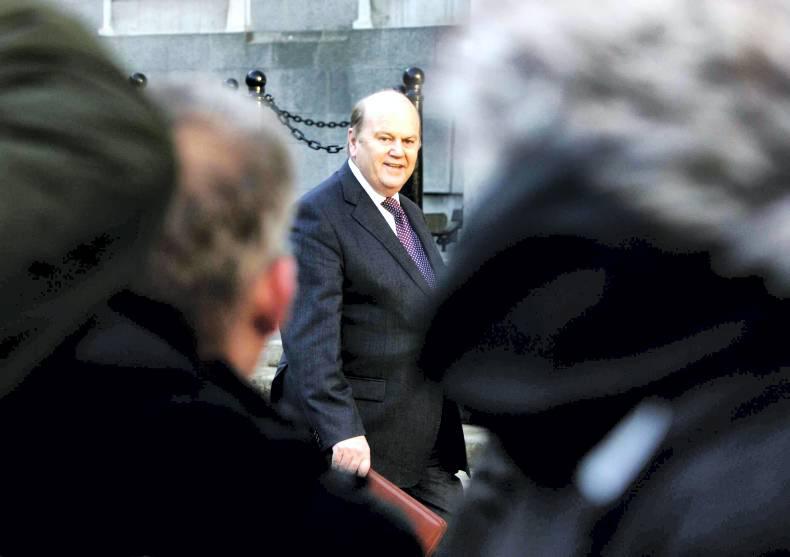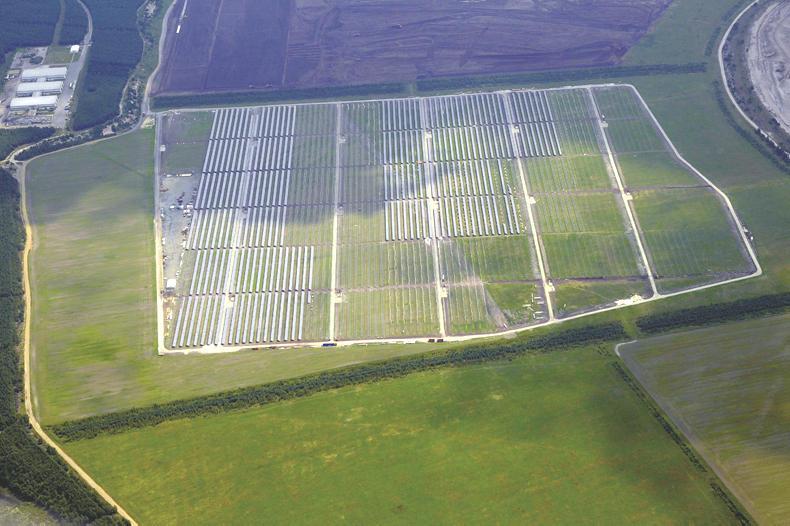Based on figures from the Teagasc National Farm Survey 2014, we assess what impact Tuesday’s budgetary announcements will have on farmer incomes. Although many farm incomes, particularly in dairy and tillage, have been hard hit after a year of bad prices, these are the most up to date figures to work from.
What will be most pleasing to taxpayers are the cuts across the three lowest Universal Social Charge (USC) band rates.
Finance Minister Michael Noonan announced that the 1.5% rate will be cut to 1%, the 3.5% rate will be cut to 3%, while the 7% rate will be cut by 1.5% down to 5.5%. Farmers with higher incomes will have more of their income exposed to the higher USC rates and therefore stand to gain the most from these cuts.
The minister also announced yesterday a new tax credit of €550 for the self-employed, which will be a benefit to many farmers. However, farmers already with a PAYE income cannot avail of this tax credit as they already receive the higher PAYE tax credit of €1,650.
In his address, Minister Noonan said these general taxation changes would see the average worker earn an additional week’s wages next year.
Based on the self-employed tax credit and the reduced USC rates, a farmer with an average farm income of €26,000 will gain an additional €800 in net income next year.
Case studies
Dairy farmer – average income €68,877
The most recent Teagasc figures indicate the average income of an Irish dairy farmer is €68,877 per annum. Based on this income, a farmer can expect to make an annual gain of more than €900 from the changes to the USC tax band alone. If he/she is a full-time farmer and can avail of the new self-employed tax credit, he/she can expect a gain in income of almost €1,500 next year.
Tillage farmer – average income €28,468
The average tillage farmer earned an income of €28,468 last year according to the National Farm Survey. The reductions across the USC rates mean a farmer with this income can expect to make a gain of almost €300 per annum from USC payments alone. If they are eligible for the self-employed tax credit, the income gain rises close to €850.
Beef farmer – average income €13,834
Based on an income of €13,834, the average beef farmer can expect to make a gain of almost €90 per year from the USC changes. As less of their income is exposed to the higher rates, the savings to be made from USC are reduced. Full-time beef farmers can also avail of the self-employed tax credit of €550, although many beef farmers have an off-farm income and may not be eligible for the credit.
Sheep farmers – average income €10,271
Based on an average income of €10,271 per annum, a sheep farmer can expect to make a gain of €50 in USC payments. This is less than other sectors as all of this average income falls within the lowest USC rate and the gains to be made are less. Again, if a farmer is self-employed they can avail of the €550 tax credit, which would bring the gains to €600 per annum.
Other changes that will impact farmer incomes in 2016 include the lift in the children’s allowance, the increase in the gift and inheritance tax threshold from €225,000 to €280,000 and the newly introduced farm succession tax credit.
Beef farmer with €12,000 average income, wife and three kids
A beef farmer earning an average of income of €12,000 stands to gain more than €580 per annum thanks to the changes in the USC and the self-employed tax credit. His wife, who is employed as a teacher with an income of €40,000, will gain over €470 per year from the cuts in the USC rates. On top of this, the family will benefit by an extra €15 per month from the child benefit increases for their three children. Their three children aged between three and 10 will all be eligible for free GP care while the three-year-old youngest will also be eligible for free childcare up to primary school age.
Dairy farmer with income of €60,000 going into partnership with 30-year-old son
A dairy farmer in his/her late 60s who wants to enter a farm partnership with his/her son or daughter can avail of a new €5,000 tax credit per year.
The scheme will allow the farm partnership to avail of the €5,000 tax credit for up to five years if they commit to transferring the farm in a phased basis over a 10-year period, potentially adding up to €25,000 over that period.
Along with this, the capital acquisition tax threshold has been increased to €280,000 which will further facilitate farm transfers. The elderly farmer will also see a €3 rise per week in his/her State pension.
Full coverage









SHARING OPTIONS